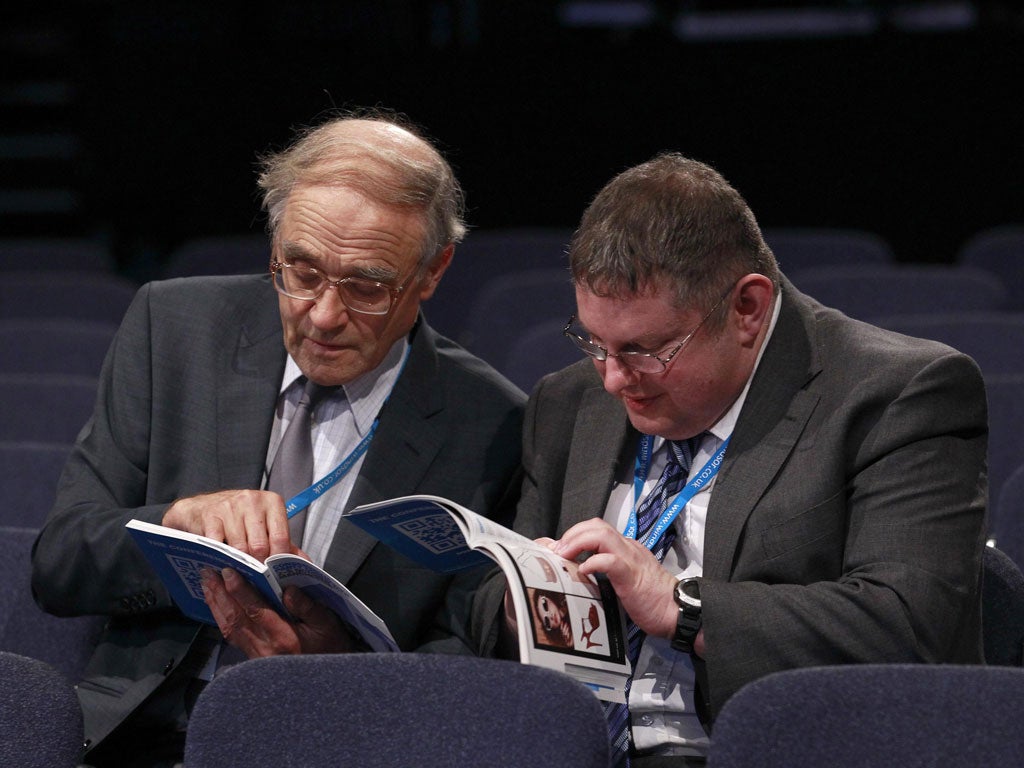Commons vote on Europe pitches Prime Minister against his party

Your support helps us to tell the story
From reproductive rights to climate change to Big Tech, The Independent is on the ground when the story is developing. Whether it's investigating the financials of Elon Musk's pro-Trump PAC or producing our latest documentary, 'The A Word', which shines a light on the American women fighting for reproductive rights, we know how important it is to parse out the facts from the messaging.
At such a critical moment in US history, we need reporters on the ground. Your donation allows us to keep sending journalists to speak to both sides of the story.
The Independent is trusted by Americans across the entire political spectrum. And unlike many other quality news outlets, we choose not to lock Americans out of our reporting and analysis with paywalls. We believe quality journalism should be available to everyone, paid for by those who can afford it.
Your support makes all the difference.David Cameron put himself on a collision course with dozens of Tory Eurosceptic MPs yesterday after he rejected their growing demands for the Government to take a tougher stance on Europe.
Conservative backbenchers will today step up pressure, both for powers to be repatriated from Brussels in the near future, and for a new referendum on British membership of the European Union.
The UK's relationship with the EU threatens to be a fault-line at the Conservative conference with the Prime Minister's pragmatic approach at odds with many of his MPs and activists. A strongly Eurosceptic message will be sent out to Downing Street today at several fringe meetings in Manchester.
The temperature has been raised by the disclosure that the Commons is likely to vote within the next few months on whether to hold the first referendum on the EU since 1975.
The debate is due to be held after a petition calling for a nationwide vote was signed by more than 100,000 people, reflecting opinion polls that suggest public antipathy to the EU is hardening.
The result of the Commons' debate would not be binding on the Government, but would be a rallying-point for Eurosceptic sentiment among Tory MPs regardless of whether they favoured full withdrawal from the EU.
More than 30 MPs are understood to support the move, although many of them have not spoken out publicly, and many more want Britain's involvement to be scaled back to looser membership of a trading bloc.
Mr Cameron said: "It's not our view that there should be an in-out referendum. I don't want Britain to leave the EU. I think it's the wrong answer for Britain. What most people want in this country is not actually to leave the EU, but to reform the EU and make sure that the balance of powers between a country like Britain and Europe is better."
The Prime Minister also infuriated the Tory Right when he made clear there was no immediate prospect of the Government attempting to claw back powers from Brussels, saying this remained an ambition for the "longer term".
He said his priority was to deal with the turmoil in the eurozone, but added that he would not use the crisis as an opportunity to try to renegotiate the terms of British membership.
"I have been very clear, I think we have given too many powers to Europe. There are some powers I would like to get back. Any future treaty change would be an opportunity to do that, but right now that is not on the immediate agenda."
He added: "The eurozone issue is the urgent priority. That is what needs to be dealt with."
Foreign Secretary William Hague denied yesterday that the party was split over Europe. "I have meetings with many Conservative backbenchers and I think we are very closely aligned – the party leadership, the Government and the great mass of the Conservative Party – on this."
He said the party's leadership was still keen to repatriate powers from Brussels, but was "constrained" by the fact of being in coalition with the Liberal Democrats.
He added: "It may well be one of the dividing lines in the general election."
Join our commenting forum
Join thought-provoking conversations, follow other Independent readers and see their replies
Comments